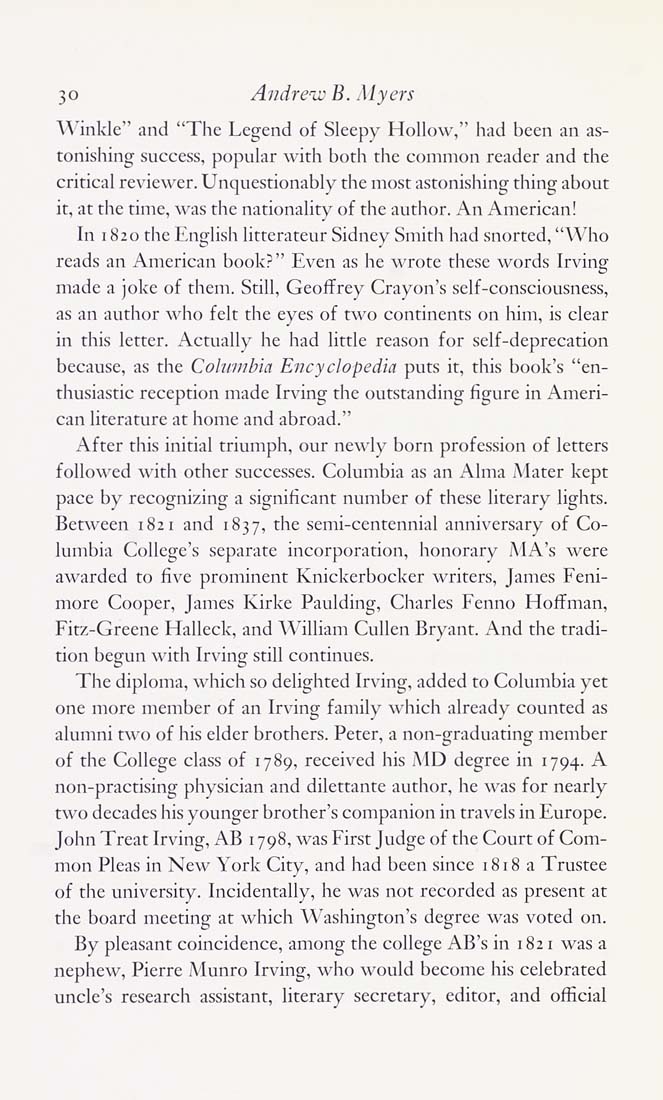Columbia Library columns (v.9(1959Nov-1960May))
(New York : Friends of the Columbia Libraries. )
|
||
|
|
|
|
| v.9,no.2(1960:Feb): Page 30 |

30 Andrew B. Myers Winkle" and "The Legend of Sleepy Hollow," had been an as¬ tonishing success, popular with both the common reader and the critical reviewer. Unquestionably the most astonishing thing about it, at the time, was the nationality of the author. An American! In 1820 the English litterateur Sidney Smith had snorted, "Who reads an American book?" Even as he wrote these words Irving made a joke of them. Still, Geofl:rey Crayon's self-consciousness, as an author who felt the eyes of two continents on him, is clear in this letter. Actually he had little reason for self-deprecation because, as the Columbia Encyclopedia puts it, this book's "en¬ thusiastic reception made Irving the outstanding figure in Ameri¬ can literature at home and abroad." After this initial triumph, our newly born profession of letters followed with other successes. Columbia as an Alma iMater kept pace by recognizing a significant number of these literary lights. Between 1821 and 1837, the semi-centennial anniversary of Co¬ lumbia College's separate incorporation, honorary MA's were awarded to five prominent Knickerbocker writers, James Feni¬ more Cooper, James Kirke Paulding, Charles Fenno Hoff'man, Fitz-Grecne Halleck, and William CuUen Bryant. And the tradi¬ tion begun with Irxdng still continues. The diploma, which so delighted Irving, added to Columbia yet one more member of an Irving family which already counted as alumni two of his elder brothers. Peter, a non-graduating member of the College class of 1789, received his .MD degree in 1794. A non-practising physician and dilettante author, he was for nearly two decades his younger brother's companion in travels in Europe. John Treat Irving, AB 1798, was First Judge of the Court of Com¬ mon Pleas in New York City, and had been since 1818 a Trustee of the university. Incidentally, he was not recorded as present at the board meeting at which Washington's degree was voted on. By pleasant coincidence, among the college AB's in 1821 was a nephew, Pierre Munro Irving, who would become his celebrated uncle's research assistant, literary secretary, editor, and official |
| v.9,no.2(1960:Feb): Page 30 |







